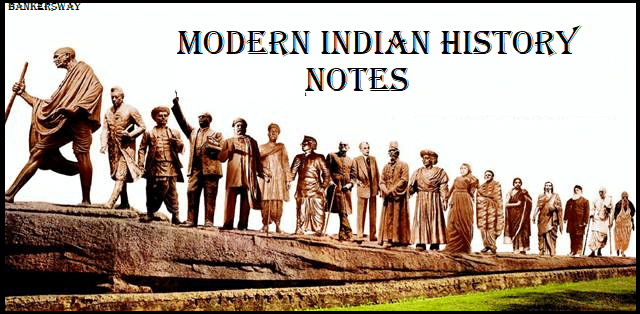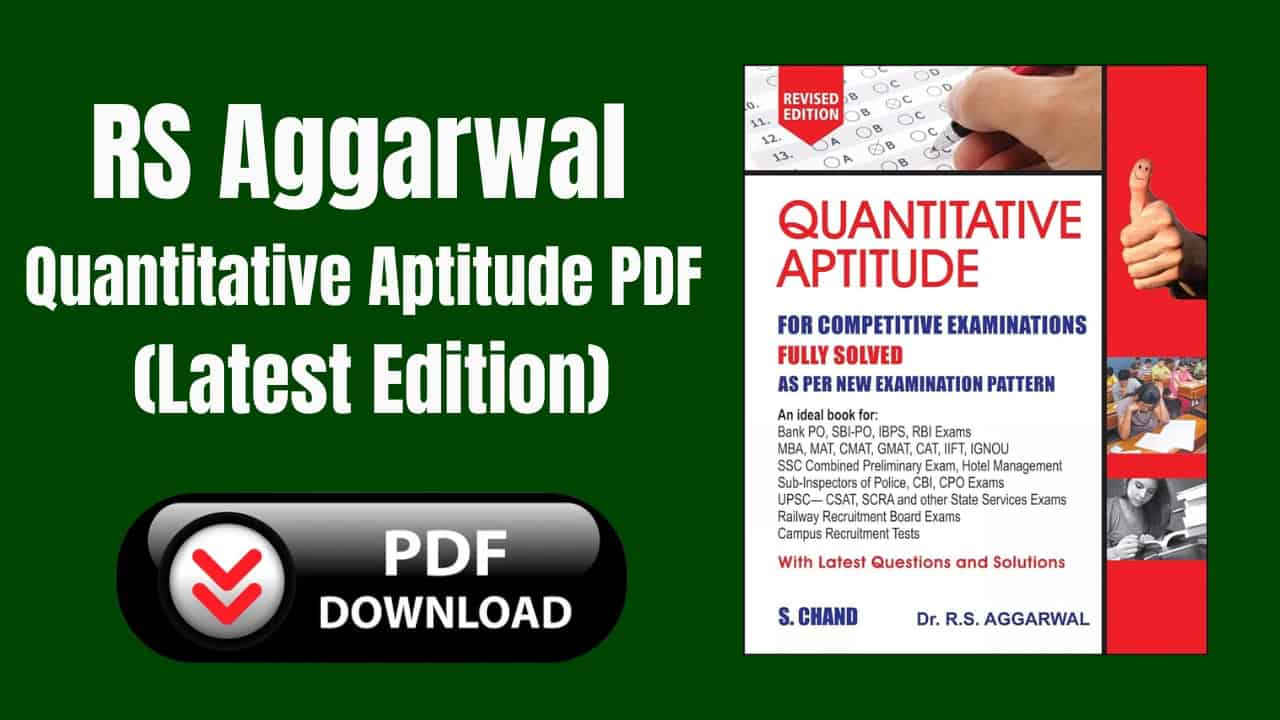India is one of the oldest civilizations in the world, its almost 5300 years old. The history onwards 1850 is considered as Modern Indian History. In this article, we are sharing a Modern Indian History Notes pdf.
British Rule in India was a major part of Modern Indian History then followed by Freedom Struggle, Independence, and so on.
Modern Indian History Notes pdf download link given at the end of the post.
British Rule and Consolidation:
Britishers were really strategic and smart as its not easy to occupy a vast country like ours. So let’s learn about it :
Rise of British East India Company :

By getting permission from the then ruling powers, the Mughals, and the local rulers, the British East India Company slowly and gradually expanded its trading activities in India.
The British East India Company evolved designs of becoming a political power by the 18th-century middle and by that time the Mughal Empire’s decline started and it fragmented into successor states.
After its victories in both the battles of Plassey (1757) and Buxar (1765), the British East India Company acquired its foothold firmly in Bengal, Bihar, and Orissa.
Since that event, the Britishers adopted a threefold strategy of ideological, military, and colonial administrative mechanisms to consolidate and expand the British Empire in India.
Britishers as Political Power :
The Britishers were not just wanted to be the conquerors like the Arabs and the Turks, they wanted to secure political power to gain optimum profits from Indian trade.
The unethical and immoral things they did, they were aware of those actions. Their actions are justified as they use ideological bases to brainwash the Indian natives and the world.
They convinced everyone that they wanted to contribute to the progress and development of India and that was a responsibility to civilize India.

In this background, let us take up the first aspect of expansion as well as its consolidation of the British expansion, the ideological bases :
Mercantilism :
- We notice the decline of feudalism in Europe by the beginning of the 16th century, along with the emergence of new ideas.
- Rise of the nation-state and the urge for discovering new geographical areas are promoted by this.
- Further, Between the 17th and 18th centuries a new commercial outlook influenced by mercantilist ideas dominated Europe.
- England had become a colonial power and a capitalist country and the growth of science and technology in England made it an industrially developed country.
- All these developments demanded England to explore for raw materials necessary for the manufacture of goods in England and also the new markets for their finished and final mechanized products.
- The countries of Europe came under the impact of a set of economic ideas and practices called mercantilism by the 17th century.
- Mercantilism necessitates the volume of world trade as more or less fixed, precious metals gold and silver form the desirable national wealth, balance of trade purposes it should impose high tariffs on imports.
Orientalism:
Orientalism is a concept that focuses on the originality of the culture and civilization of the Orient.
Orientalists are also known as Ideologists. Orientalists, who were conservative by nature pleaded for providing a structure of security without interference in the working of the cultural traditions and religious-social institutions. They contended that peace would encourage the trade and it would be to Britain’s advantage.
Evangelicalism :
A Protestant Christian movement of England of the 18th century is called Evangelicalism,
Rather than the traditions of the established church, it is a contrast to the Orthodox Church focused on personal experiences, individual reading of the gospel.
The evangelists were publicly hostile to ‘Indian barbarism’ and yearn to ‘civilize India’. Some Christian missionaries attempted to refine the ‘degenerate Indian society’ quietly.
The Indian Freedom Movement :

The most significant movement in its modern history is India’s independence from the British Rule.
It’s very necessary and important to know the struggles, sacrifices, and contributions which made our country independent.
We all know about Mahatma Gandhi, the father of our nation, and the leader of the Indian struggle for independence.
His strength and undeniable support of the crowd, he enjoyed that really made an influence in this struggle.
He adopted a unique way of non-violence to protest against the British that was very impactful.
Non-Cooperation Movement :
Led by Mahatma Gandhi, the Non-Cooperation Movement started on 1st August 1920. It was one of the largest civil disobedience movements of all time.
People were motivated to give up their titles and boycott government elections, schools, colleges, etc. The public also stayed away from taking part and contribute to elections.
Civil Disobedience Movement:
It was also led by Mahatma Gandhi, it was a much bigger movement than the Non-Cooperation movement.
It was started on 12 March 1930, One of the main reasons for this movement was the monopoly the British had on salt in India.
Indians were prohibited from collecting and manufacturing salt. Indians had to pay heavy taxes when buying salt from the British.
Mahatma Gandhi then started his renowned Dandi March, a 241-mile journey on foot to the salt mines in Gujarat.

Quit India Movement :
The Quit India Movement was the final movement that gave India its independence.
Gandhiji and Indian National Congress launched the Quit India Movement during World War II on the 8th of August 1942.
With only one demand for this movement was that the British Raj in India must be abolished.
But unfortunately, the movement was unsuccessful because Winston Churchill refused the demand to withdraw from India.
After that, the British realize that their power in India was declining.
Some Other Significant Movements/Incidents :
Simon Commission:
Indian Constitution was the agenda for this commission. However, the entire commission composed of Englishmen, no Indian members were a part of it.
Indian leaders revolted and protested with the “Simon Go Back” demonstrations.
Jallianwala Bagh massacre:
This was the most blood-curdling event that happened on 13 April 1919 at Amritsar.
General Dyre opened fire on a crowd of innocent villagers, without any notice or warning.
379 people were killed in cold blood and almost 1200 people were wounded severely.
Rowlatt Act:
Only based on suspicion, without any actual proof, this act allowed to arrest people.
Jallianwala bagh massacre was the turning point of the Indian independence struggle.
Click Here to download Modern Indian History Notes pdf
Indian History Questions for Competitive Exams, History MCQ Pdf




1 thought on “Modern Indian History Notes pdf”